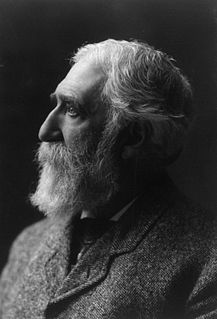A Quote by William Penn
A man in business must put up many affronts if he loves his own quiet.
Related Quotes
The great secret of morals is love; or a going out of our nature, and an identification of ourselves with the beautiful which exists in thought, action, or person, not our own. A man, to be greatly good, must imagine intensely and comprehensively; he must put himself in the place of another and of many others; the pains and pleasure of his species must become his own. The great instrument of moral good is the imagination.
An Athenian citizen does not neglect his state because he takes care of his own household; even those of us who are engaged in business have a very fair idea of politics. We do not regard a man who takes no interest in public affairs as harmless. We do not say that such a man 'minds his own business'. Rather we say he has no business here at all.
Patience is a most necessary qualification for business; many a man would rather you heard his story than granted his request. One must seem to hear the unreasonable demands of the petulant, unmoved, and the tedious details of the dull, untired. That is the least price that a man must pay for a high station.
The most powerful drive in the ascent of man is his pleasure in his own skill. He loves to do what he does well and, having done it well, he loves to do it better. You see it in his science. You see it in the magnificence with which he carves and builds, the loving care, the gaiety, the effrontery. The monuments are supposed to commemorate kings and religions, heroes, dogmas, but in the end the man they commemorate is the builder.
Man loves his own ruin. The cup is so sweet that though he knows it will poison him, yet he must drink it. And the harlot is so fair, that though he understands that her ways lead down to hell, yet like a bullock he follows to the slaughter till the dart goes through his liver. Man is fascinated and bewitched by sin.
Some reformers may urge that in the ages distant future, patriotism, like the habit of monogamous marriage, will become a needless and obsolete virtue; but just at present the man who loves other countries as much as he does his own is quite as noxious a member of society as the man who loves other women as much as he loves his wife. Love of country is an elemental virtue, like love of home.
The principal, the only, thing a man makes, is his condition of fate. Though commonly he does not know it, nor put up a sign to this effect, "My own destiny made and mended here." (Not yours.) He is a master workman in the business. He works twenty-four hours a day at it, and gets it done. Whatever else he neglects or botches, no man was ever known to neglect this work. A great many pretend to make shoes chiefly, and would scout the idea that they make the hard times which they experience.







































